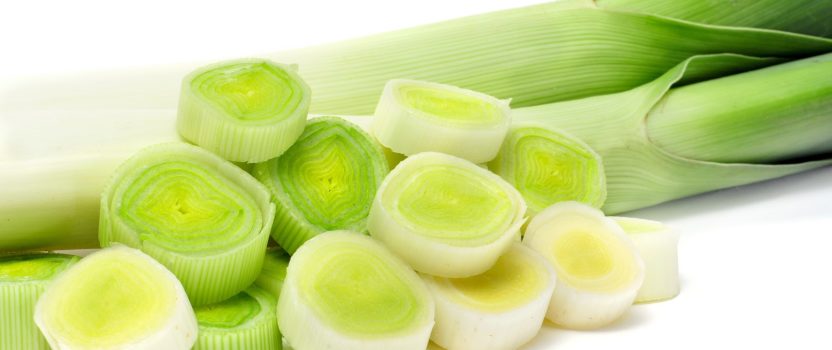Leeks
Leeks are in their prime during the winter season. Like garlic, onions and shallots, it’s a member of the allium family, but has a much more refined, sweet and subtle flavor.
Packed with nutrients
Leeks contain significant amounts of thiosulfinites – antioxidants that convert to a compound called allicin when prepared and cooked. Allicin not only has antibacterial, antifungal and antiviral properties, it can also restore suppressed antibody responses. This makes it interesting for those researching a wide range of issues – from cancer treatment and prevention to the common cold. Aside from enhancing the immune system, allicin is also important for heart health. Many clinical studies have shown that allicin reduces total cholesterol, LDL (bad cholesterol) and triglycerides, while increasing HDL (good cholesterol). It also reduces blood vessel stiffness, reduces blood pressure, and the formation of blood clots. All this supports the overall health of the circulatory system and helps decrease the risk of heart attacks and strokes.
Not just an ingredient
Often used just to give flavour to stews, stock and soups, the leek should not be considered merely an add-in because it can stand up very well either alone or in a variety of dishes. When preparing slice lengthwise and rinse under cold water to remove any dirt inside. Braised in white wine, fresh thyme and parsley in the oven, leeks make a wonderful accompaniment for any meal. Sprinkle a little chopped garlic over for added taste and more allicin! Or for a light but perfectly balanced lunch prepare them Greek style, with fresh tomatoes, feta cheese, black olives and fresh basil.


Leave a Reply
Your email is safe with us.
You must be logged in to post a comment.